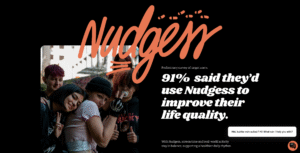3 min read
In a world characterized by constant change and innovation, staying ahead of the competition has never been more challenging. The landscape of business is undergoing a profound transformation, driven by emerging technologies, evolving consumer expectations, and the relentless pursuit of new markets. In this dynamic environment, traditional approaches to strategy and product development often fall short. This is where Design Thinking emerges as a powerful tool for businesses seeking to thrive in the age of disruption.
Understanding Design Thinking
Design Thinking is not just a design methodology; it’s a mindset that places human needs and experiences at the center of problem-solving. It’s an approach that encourages organizations to think empathetically, iterate rapidly, and embrace ambiguity. While it has its roots in the design world, its applications extend far beyond aesthetics. Design Thinking is about creating solutions that resonate with people, and in today’s competitive landscape, that’s more important than ever.
Disruption as the New Norm
Disruption is no longer a buzzword but a daily reality. Startups are challenging industry giants, and new technologies are reshaping entire markets overnight. To thrive in this landscape, businesses must be agile and innovative. They need strategies that not only respond to change but anticipate it. This is where Design Thinking becomes invaluable.
Design Thinking and Disruptive Innovation
At its core, disruptive innovation is about identifying unmet needs and creating solutions that are more accessible and affordable. Design Thinking’s empathetic approach is perfectly aligned with this concept. By immersing themselves in the lives of their customers, businesses can uncover pain points and opportunities that traditional market research might miss. This deep understanding becomes the foundation for disruptive ideas.
Iterative Problem-Solving
Design Thinking encourages iterative problem-solving. It recognizes that the first solution is rarely the best one. By rapidly prototyping and testing, businesses can refine their ideas, avoiding costly mistakes and ensuring that their products or services truly meet customer needs.
Cross-functional Collaboration
Disruptive innovation often requires cross-functional collaboration. Teams with diverse perspectives and skill sets can approach problems from multiple angles, increasing the chances of finding breakthrough solutions. Design Thinking’s emphasis on empathy and collaboration fosters an environment where these teams can thrive.
A Competitive Edge
In today’s disruptive landscape, businesses that embrace Design Thinking gain a competitive edge. They’re more adaptable, more attuned to their customers, and more capable of identifying new opportunities. Whether it’s reimagining an existing product, entering a new market, or developing a groundbreaking service, Design Thinking equips businesses with the tools they need to succeed.
Conclusion
In a world where change is the only constant, competitiveness is about more than just having a great product or a solid strategy. It’s about understanding people, their needs, and their desires. Design Thinking offers a path to innovation that is empathetic, iterative, and agile – essential qualities for businesses looking to navigate disruption and create a lasting impact in today’s fast-paced markets. By embracing Design Thinking, companies can position themselves at the forefront of innovation and ensure they are always one step ahead of the competition.
Stay Curious, Stay Innovative.
Ting Ting Zhao
Ting Ting Zhao is a Digital Editor at Apxt. Passionate explorer of the intersection between creativity and technology. With an insatiable curiosity, I decode the complex tapestry of design, brand communication, and emerging technologies. As a seasoned critic and strategist, I’m on a mission to demystify the strategic potential of design in the digital age. Join me as we navigate the ever-evolving landscape, unraveling possibilities, and shaping brands that thrive in the dynamic world of innovation.



